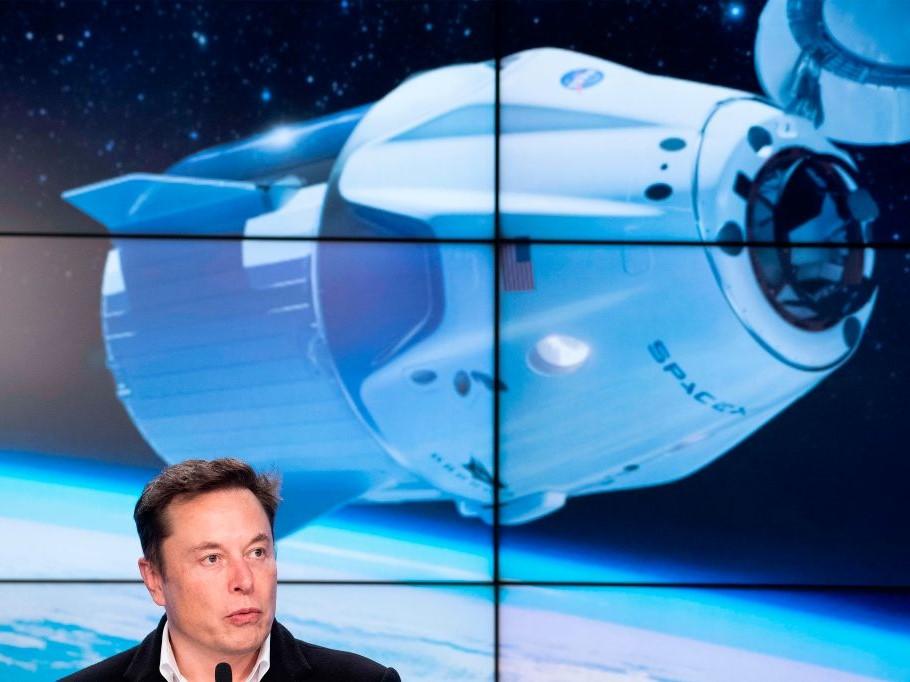SpaceX postpones launch of Starlink satellites aimed at delivering internet from space
Project is a 'key stepping stone on the way towards establishing a self-sustaining city on Mars', says founder Elon Musk

Your support helps us to tell the story
From reproductive rights to climate change to Big Tech, The Independent is on the ground when the story is developing. Whether it's investigating the financials of Elon Musk's pro-Trump PAC or producing our latest documentary, 'The A Word', which shines a light on the American women fighting for reproductive rights, we know how important it is to parse out the facts from the messaging.
At such a critical moment in US history, we need reporters on the ground. Your donation allows us to keep sending journalists to speak to both sides of the story.
The Independent is trusted by Americans across the entire political spectrum. And unlike many other quality news outlets, we choose not to lock Americans out of our reporting and analysis with paywalls. We believe quality journalism should be available to everyone, paid for by those who can afford it.
Your support makes all the difference.Billionaire Elon Musk’s plans to launch 60 satellites into space as part of a project to build a high-speed internet network that would be available anywhere on the planet has had to be postponed due to high winds.
His company SpaceX was set to blast a Falcon 9 rocket carrying the satellites into orbit late Wednesday night.
But the adverse weather conditions at Florida’s Cape Canaveral meant the launch was delayed by 24 hours.
It will now take place on Thursday at 10.30pm local time.
If successful, the mission will be the first step in Musk’s much-publicised Starlink project – a hugely ambitious scheme to create a mega-constellation of more than 12,000 satellites in low orbit which, together, beam high speed low-cost broadband to every corner of earth.
He hopes this, in turn, will eventually generate the funds to develop spacecraft capable of flying paying customers to the moon and eventually colonising Mars.
In a call with reporters before Wednesday's countdown was halted, the high-tech entrepreneur - who made his first millions as one of PayPal's founders - praised the "fundamental goodness" of his aims – but admitted success was not guaranteed.
“There is a lot of new technology here, so it's possible that some of these satellites may not work," he said, adding that there is a "small possibility" that none will work.
Nonetheless, the 47-year-old – who is also the chief executive of car-maker Tesla – said: “We think this is a key stepping stone on the way towards establishing a self-sustaining city on Mars and a base on the moon.”
For now, getting Starlink up and running is set to cost billions of dollars but Musk insists the company has “sufficient capital" to turn the plans into reality.
Join our commenting forum
Join thought-provoking conversations, follow other Independent readers and see their replies
Comments